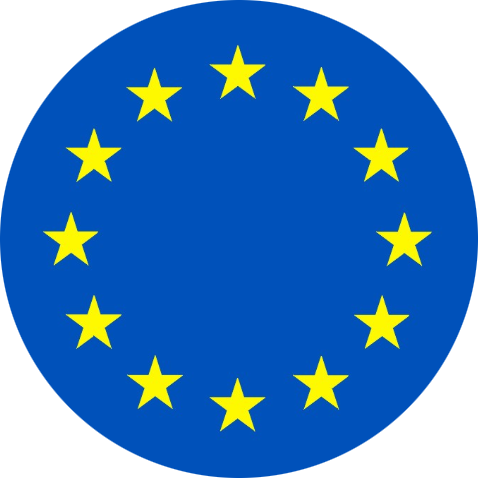FOR INSTITUTIONAL CLIENTS ONLY.
This section of the website is for the use of institutional investors resident in the US only, and is not suitable for, or to be relied upon by, other investors. If you are not an institutional investor resident in the US, please leave this section of the website and enter a different section of the website which is appropriate to you, via the homepage.
Please read the following important information regarding the use of this section of the website. This Important Information should be read alongside, and is in addition to, the Legal Terms and Conditions (accessible by clicking on the 'Terms and Privacy' link at the bottom of each page of the website).
You can progress to your chosen area of this website by accepting this disclaimer. By clicking 'Accept' you confirm that you have read and accepted this Important Information for use of this section of the website and the Legal Terms and Conditions in their entirety (each as amended from time to time). If you do not agree to this Important Information or the Legal Terms and Conditions you must not use this section of the website.
This section of the website is for the use of institutional investors resident in the US only, and is not suitable for, or to be relied upon by, other investors, including investors resident in Canada. The information in this section of the website does not constitute either an offer to sell, a solicitation, or an offer to buy in a country in which this type of offer or solicitation is unlawful, or in which a person making such an offer or solicitation does not hold the necessary authorisation to do so. It is also not directed at investors, in those cases where the law prohibits this type of offer or solicitation from being made. Any applications or requests for further information received from persons not resident in a jurisdiction where a particular service or product is registered, may be refused at Insight's discretion.
Information on the pages in this section of the website may not be suitable for all investors. Part of this section of the website contains products that are suitable for professional and institutional investors only. It is important that you do not rely upon the content of this website for investment decisions. Please contact a financial adviser before making any investment or financial decisions.
IMPORTANT DISCLOSURES
This website has been prepared by Insight North America LLC (INA), a registered investment adviser under the Investment Advisers Act of 1940 and regulated by the US Securities and Exchange Commission. INA is part of “Insight” or “Insight Investment”, the corporate brand for certain asset management companies operated by Insight Investment Management Limited including, among others, Insight Investment Management (Global) Limited and Insight Investment International Limited.
Opinions expressed herein are current opinions of Insight, and are subject to change without notice. Insight assumes no responsibility to update such information or to notify a client of any changes. Any outlooks, forecasts or portfolio weightings presented herein are as of the date appearing on this material only and are also subject to change without notice. Insight disclaims any responsibility to update such views. No forecasts can be guaranteed.
Nothing on this website is intended to constitute an offer or solicitation to sell or a solicitation of an offer to buy any product or service (nor shall any product or service be offered or sold to any person) in any jurisdiction in which either (a) INA is not licensed to conduct business, and/or (b) an offer, solicitation, purchase or sale would be unavailable or unlawful.
Information shown should not be duplicated, amended, or forwarded to a third party without consent from INA. The information shown is intended for institutional investors only and should not be made available to or relied upon by retail investors. This material is provided for general information only and should not be construed as investment advice or a recommendation. You should consult with your adviser to determine whether any particular investment strategy is appropriate.
Assets under management are represented by the value of cash securities and other economic exposures, and are calculated on a gross notional basis. Regulatory assets under management without exposures shown can be provided upon request. Unless otherwise specified, the performance shown herein is that of Insight Investment (for Global Investment Performance Standards (GIPS®), the ‘firm’) and not specifically of INA. See the GIPS® composite disclosure page for important information and related disclosures about firm performance.
Past performance is not a guide to future performance, which will vary. The value of investments and any income from them will fluctuate and is not guaranteed (this may partly be due to exchange rate changes). Future returns are not guaranteed and a loss of principal may occur. Ownership interests in a fund are not insured by the FDIC, are not deposits, obligations of, or endorsed or guaranteed in any way, by BNY Mellon (as further defined below). Neither BNY Mellon nor any of its controlled affiliates (which includes any fund’s general manager/ managing partner/ investment adviser), may directly or indirectly, guarantee, assume, or otherwise insure the obligations or performance of the fund or of any other covered fund in which such fund invests.
Targeted returns intend to demonstrate that the strategy is managed in such a manner as to seek to achieve the target return over a normal market cycle based on what Insight has observed in the market, generally, over the course of an investment cycle. In no circumstances should the targeted returns be regarded as a representation, warranty or prediction that a specific strategy will reflect any particular performance or that it will achieve or is likely to achieve any particular result or that investors will be able to avoid losses, including total losses of their investment.
Certain information shown herein is derived from a representative account deemed to appropriately represent the management styles herein. Each investor’s portfolio is individually managed and will vary from the information shown. The mention of a specific security is not a recommendation to buy or sell such security. The specific securities identified are not representative of all the securities purchased, sold or recommended for advisory clients. It should not be assumed that an investment in the securities identified will be profitable. Actual holdings will vary for each client and there is no guarantee that a particular client’s account will hold any or all of the securities listed.
The quoted benchmarks do not reflect deductions for fees, expenses or taxes, nor reinvestment of interest payments and other forms of income. These benchmarks are unmanaged and cannot be purchased directly by investors. Benchmark performance is shown for illustrative purposes only and does not predict or depict the performance of any investment strategy. There may be material factors relevant to any such comparison such as differences in volatility, security selection, risk profiles and regulatory and legal restrictions between a particular strategy and its associated benchmark.
Transactions in foreign securities may be executed and settled in local markets. Performance comparisons will be affected by changes in interest rates. Investment returns fluctuate due to changes in market conditions. Investment involves risk, including the possible loss of principal. No assurance can be given that the performance objectives of a given strategy will be achieved.
Insight does not provide tax or legal advice to its clients and all investors are strongly urged to consult their tax and legal advisors regarding any potential strategy or investment.
Information herein may contain, include or is based upon forward-looking statements within the meaning of the federal securities laws, specifically Section 21E of the Securities Exchange Act of 1934, as amended. Forward-looking statements include all statements, other than statements of historical fact, that address future activities, events or developments, including without limitation, business or investment strategy or measures to implement strategy, competitive strengths, goals expansion and growth of our business, plans, prospects and references to future or success. You can identify these statements by the fact that they do not relate strictly to historical or current facts. Words such as “anticipate,” “estimate,” “expect,” “project,” “intend,” “plan,” “believe,” and other similar words are intended to identify these forward-looking statements. Forward-looking statements can be affected by inaccurate assumptions or by known or unknown risks and uncertainties. Many such factors will be important in determining our actual future results or outcomes. Consequently, no forward-looking statement can be guaranteed. Our actual results or outcomes may vary materially. Given these uncertainties, you should not place undue reliance on these forward-looking statements.
Insight and BNY Mellon Securities Corporation (BNYMSC) are subsidiaries of BNY Mellon. BNYMSC is a registered broker and FINRA member. BNY Mellon is the corporate brand of the Bank of New York Mellon Corporation and may also be used as a generic term to reference the Corporation as a whole or its various subsidiaries generally. Products and services may be provided under various brand names and in various countries by subsidiaries, affiliates and joint ventures of the Bank of New York Mellon Corporation where authorized and regulated as required within each jurisdiction. Unless you are notified to the contrary, the products and services mentioned are not insured by the FDIC (or by any government entity) and are not guaranteed by or obligations of the Bank of New York Mellon Corporation or any of its affiliates. The Bank of New York Mellon Corporation assumes no responsibility for the accuracy or completeness of the above data and disclaims all expressed or implied warranties in connection there with. Personnel of certain of our BNY Mellon affiliates may act as: (i) registered representatives of BNYMSC (in its capacity as a registered broker-dealer) to offer securities, (ii) officers of the Bank of New York Mellon (a New York chartered bank) to offer bank-maintained collective investment funds and (iii) associated persons of BNYMSC (in its capacity as a registered investment adviser) to offer separately managed accounts managed by BNY Mellon Investment Management firms.
Telephone conversations may be recorded in accordance with applicable laws.








 United States
United States























